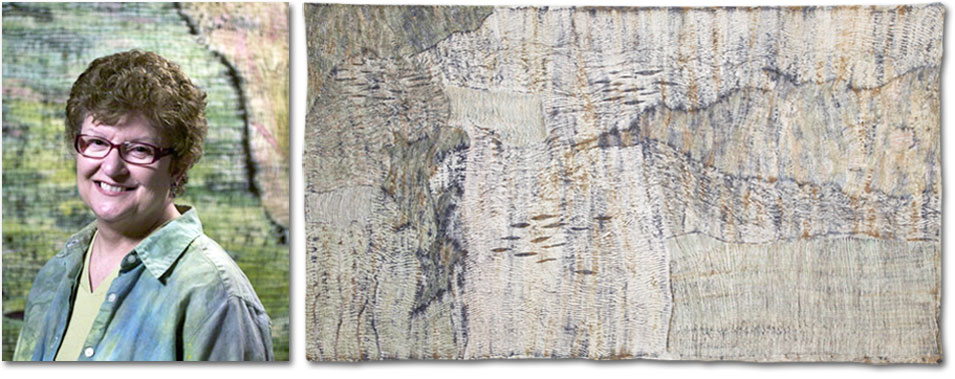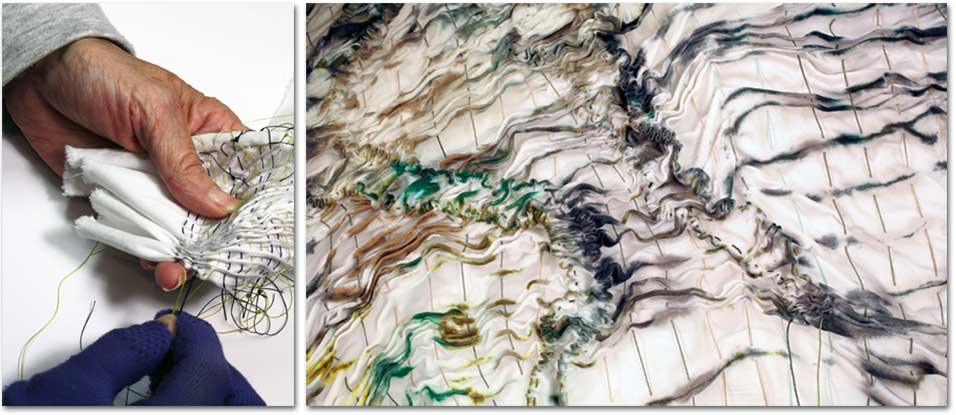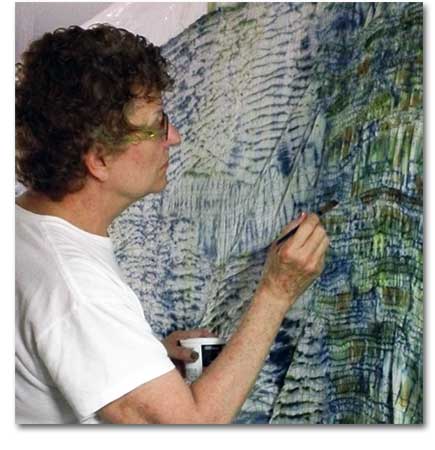DESCRIPTION
Creating pattern by hand stitching can be slow, small and meditative or fast, large and physical. Participants will explore the extremes in this class and choose the styles they like best. Beginning with the basics, students will learn mokume, maki-nui, ori-nui, and karamatsu stitches followed by immersion dyeing and removal of the shibori stitches. The marks on the cloth become the evidence of the stitches once present. Painting on dye, varying the size of stitches, combining stitches and leaving in the shibori stitches can all be used to vary results and create compositions and students will select those techniques they wish to explore. One yard of cloth will be sufficient for those who want to work small and meditatively. Students who want to work fast and large may bring additional cloth as desired. Studio time will include videos, images, demonstrations, discussion and critiques.
SUPPLY LIST (Please label your own supplies)
• Long milliners or basting needles for hand sewing
• Thimble, scissors, seam ripper
• Quilter’s ruler (6” x 24” is great, but bring what you have or a plain piece of Plexiglas)
• Quilter’s marking pencil (or graphite)
• Plastic to wrap your pieces in for batching (dry cleaner bags are great)
• Several paint brushes for painting on dyes
• Rubber gloves (flexible gloves to wear when painting on dye and removing stitches)
• Dyers gloves (to protect hands when immersion dyeing)
• Old clothes to wear, apron
• Small zippered laundry bag marked with your name
• Sketch book, pencil, eraser, black marker
• Pins (to pin into your design board) and pin cushion
• Zip lock plastic bag for transporting wet fabric home
• Task lamp
• 1 yard white Prepared for Dyeing (PFD) cotton, washed and air dried (I like to use cotton sateen, but other cotton is fine)
Optional:
• Additional fabric if you want to work large
• Strong thread or cord for hand stitching, e.g., dental floss, hand quilting thread, buttonhole twist
• Mask (only needed if you would like to help with mixing dyes)
• Finger protectors (available at drugstores), quilters' gloves with grippers, hand sewers' gloves can be helpful in pulling up threads
• Zip lock plastic bag for transporting wet fabric home
• Embroidery floss, additional needles, batting and backing if you would like to start embellishing one of your shibori pieces
Materials fee covers the following items:
• 1 large spool C-LON Micro cord for each student
• MX Procion dyes
• Synthrapol for washing, sodium alginate for thickening dyes
• Handout
• Reference books
If you have any questions about the materials list or the course in general, please > email Sue



